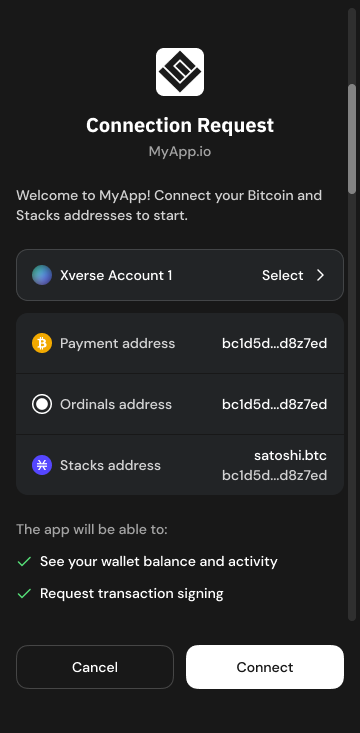[Legacy ⚠️] getAccounts
request parameters
Description
import {request} from "sats-connect";
try {
const response = await request('getAccounts', null);
console.log("getAccounts ~ response:", response)
if (response.status === 'success') {
const paymentAddressItem = response.result.find(
(address) => address.purpose === AddressPurpose.Payment
);
const ordinalsAddressItem = response.result.find(
(address) => address.purpose === AddressPurpose.Ordinals
);
const stacksAddressItem = response.result.find(
(address) => address.purpose === AddressPurpose.Stacks
);
} else {
if (response.error.code === RpcErrorCode.USER_REJECTION) {
// handle user cancellation error
} else {
// handle error
}
}
} catch (err) {
alert(err.error.message);
}
address field
Description
Last updated